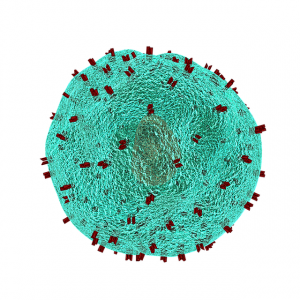Selenium is one of the micronutrients known to have an important and specific impact on immune system activity.

In a 2022 review, Munteanu and Schwartz summarize the relevant research data on the modulation of immune function by micronutrients, including selenium and zinc [Munteanu 2022].
For selenium, the authors find the following evidence of a beneficial effect of selenium on immune system function:
- Selenium, as a component of the amino acid selenocysteine, improves the synthesis of inflammatory mediators.
- Selenium treatment leads to a decline in the gene expression of the pro-inflammatory cytokines IL-1 and TNF-alpha. This indicates that selenium has an anti-inflammatory effect in the body.
- Selenium enhances the immune response of T-cells and T-helper 1 cells. T-cells work to destroy cells that have been infected by bacteria or viruses. Th1 cells are also responsible for fighting against bacteria and viruses.
- Selenium supplementation increases the concentration of antibodies that enhance vaccine effects.
- Selenium acts as a co-factor in the immunity that is mediated by the influenza vaccine. Selenium also serves as a co-factor to achieve a more effective immune response to COVID vaccination.
- Selenium contributes to the defense against bacterial and vital pathogens through its effects on redox signaling activities.
- -Selenium supplementation of patients with cancer increases antibody concentrations of the immunoglobulins IgA and IgG as well as increases the number of neutrophils.
Selenium – A Crucial Micronutrient for a Functional Immune System
Munteanu & Schwartz [2022] make the following additional points about an adequate supply of selenium:
- Selenium improves not only in the functioning of the immune system but also the functioning of thyroid metabolism and the functioning of the cardiovascular system.
- Selenium may play a role in the prevention of some forms of cancers.
Selenium and COVID-19
Munteanu & Schwartz [2022] report that selenium together with zinc exerts a protective role in COVID-19 patients. The combination of selenium and zinc is associated with a higher chance of survival.
